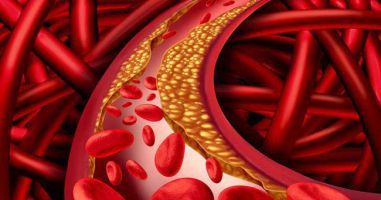## High Blood Fat: A Silent Health Threat
Blood fat, also known as lipidemia, refers to the presence of fats in the blood, such as cholesterol and triglycerides. These are essential for normal body function, especially in hormone production, cell building, and energy supply. However, when the levels of these fats exceed the permissible limit, high blood fat occurs, bringing several serious health risks, especially for the cardiovascular system.
What is high blood fat or dyslipidemia?
High blood fat, or dyslipidemia, occurs when the fat levels in the blood surpass safe thresholds. Some commonly used indicators include total cholesterol, LDL (bad cholesterol), HDL (good cholesterol), and triglycerides. When these indicators are imbalanced, especially with high LDL and triglyceride levels, the body faces an increased risk of plaque formation in the blood vessels.

Causes of high blood fat
An unhealthy lifestyle is the leading cause of high blood fat. Some negative habits include:
Unhealthy diet: Consuming large amounts of saturated fat, animal fat, fried foods, fast food, and organ meats.
Lack of exercise: A sedentary lifestyle with little physical activity or regular exercise can lead to fat metabolism disorders.
Overweight and obesity: Excess body fat not only affects physical appearance but also disrupts fat metabolism.
Substance use: Smoking and excessive alcohol consumption negatively impact the liver, the primary organ responsible for processing blood lipids.
Additionally, genetic factors cannot be overlooked. Some people with a slim build and healthy eating habits may still suffer from high blood fat due to genetic predisposition or underlying medical conditions such as liver or kidney disease, diabetes, chronic pancreatitis or inflammatory bowel disease, Cushing’s syndrome, or hypothyroidism. Certain medications like birth control pills, diuretics, and sedatives can also disrupt fat metabolism.

Common symptoms of high blood fat
One dangerous characteristic of high blood fat is the absence of noticeable symptoms in its early stages. The disease progresses silently and often goes undetected until complications arise. Some possible symptoms include feelings of fatigue, dizziness, and mild headaches. Individuals may also experience numbness in their hands and feet, especially when sitting for extended periods or in the early morning. Unexplained declines in liver and kidney function may also be observed. In cases of extremely high blood fat, xanthomas (yellowish fat deposits) may appear under the skin or around the eyes.
As cholesterol plaques build up in the arteries, they can narrow or block blood flow, leading to serious complications such as heart attacks, strokes, kidney failure, fatty liver, and even death if left untreated. Therefore, proactive measures are crucial to safeguarding one’s health.
Can skinny people have high blood fat?
While many assume that only obese individuals are at risk, skinny people can also suffer from high blood fat due to factors such as congenital lipid metabolism disorders, poor liver function, sedentary lifestyles, prolonged stress, aging, and genetic predisposition. Therefore, regardless of body type, staying vigilant is essential.
Prevention and control of high blood fat
To protect cardiovascular health and maintain safe blood fat levels, consider the following:
Regular health check-ups: Monitor your blood fat levels with annual or biannual lipid profile tests to detect potential risks early on.
Healthy diet: Reduce consumption of oily, fried, and processed foods. Incorporate more green vegetables, fruits, and whole grains into your diet. Include omega-3 rich foods like salmon, sardines, and flax seeds. Drink cholesterol-lowering teas like green tea and jiaogulan tea.
Regular exercise: Engage in 30 minutes of daily physical activity such as brisk walking, yoga, swimming, or cycling.
Limit alcohol intake and quit smoking: These habits can overload the liver, disrupting fat metabolism.
In summary, high blood fat is a silent health threat. While it may not cause noticeable symptoms initially, uncontrolled blood fat levels can lead to severe consequences. Embrace a healthy lifestyle and stay vigilant through regular health check-ups to maintain safe blood fat levels and protect your well-being.
The Magic Brew: A Daily Cup to Lower Cholesterol.
Introducing a traditional herbal drink with a twist – a potent concoction that offers a plethora of health benefits, especially for those seeking to trim down and tone up. This magical brew is a game-changer for those eager to shed some pounds and achieve their dream physique. Discover the secrets of this ancient remedy, now revamped for the modern health enthusiast.



































